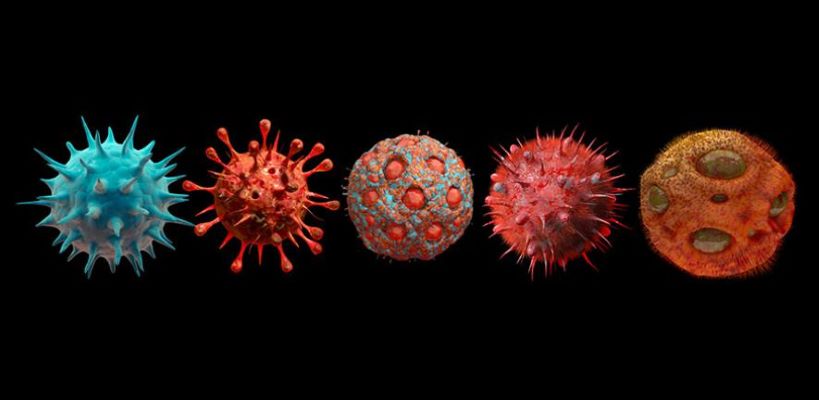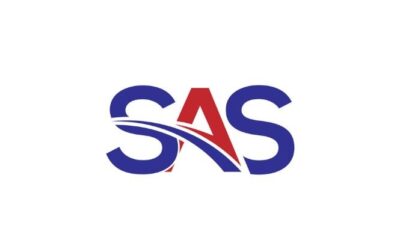Education
New Vaccine Technology Could Protect From Future Viruses And Variants

Studies of a ‘future-proof’ vaccine candidate have shown that just one antigen can be modified to provide a broadly protective immune response in animals. The studies suggest that a single vaccine with combinations of these antigens – a substance that causes the immune system to produce antibodies against it – could protect against an even greater range of current and future coronaviruses.
This is an exceptionally different vaccine technology – it’s a real turning point
Jonathan Heeney
The vaccine antigen technology, developed by the University of Cambridge and spin-out DIOSynVax in early 2020, provided protection against all known variants of SARS-CoV-2 – the virus that causes COVID-19 – as well as other major coronaviruses, including those that caused the first SARS epidemic in 2002.
The studies in mice, rabbits and guinea pigs – an important step before beginning human clinical trials, currently underway in Southampton and Cambridge – found that the vaccine candidate provided a strong immune response against a range of coronaviruses by targeting the parts of the virus that are required for replication. The vaccine candidate is based on a single digitally designed and immune-optimised antigen.
Even though the vaccine was designed before the emergence of the Alpha, Beta, Gamma, Delta and Omicron variants of SARS-CoV-2, it provided a strong protection against all of these and against more recent variants, suggesting that vaccines based on DIOSynVax antigens may also protect against future SARS-CoV-2 variants.
DIOSynVax (Digitally Immune Optimised Synthetic Vaccines) uses a combination of computational biology, protein structure, immune optimisation, and synthetic biology to maximise and widen the spectrum of protection that vaccines can provide against global threats including existing and future virus outbreaks. Its vaccine candidates can be deployed in a variety of vaccine delivery and manufacturing platforms. The results are reported in the journal Nature Biomedical Engineering.
Since the SARS outbreak in 2002, coronavirus ‘spillovers’ from animals to humans have been a threat to public health, and require vaccines that provide broad-based protection. “In nature, there are lots of these viruses just waiting for an accident to happen,” said Professor Jonathan Heeney from Cambridge’s Department of Veterinary Medicine, who led the research. “We wanted to come up with a vaccine that wouldn’t only protect against SARS-CoV-2, but all its relatives.”
All currently available vaccines, such as the seasonal flu vaccine and existing Covid-19 vaccines, are based on virus strains or variants that arose at some point in the past. “However, viruses are mutating and changing all the time,” said Heeney. “Current vaccines are based on a specific isolate or variant that occurred in the past, it’s possible that a new variant will have arisen by the time we get to the point that the vaccine is manufactured, tested and can be used by people.”
Heeney’s team has been developing a new approach to coronavirus vaccines, by targeting their ‘Achilles heel’. Instead of targeting just the spike proteins on the virus that change to evade our immune system, the Cambridge vaccine targets the critical regions of the virus that it needs to complete its virus life cycle. The team identifies these regions through computer simulations and selecting conserved structurally engineered antigens. “This approach allows us to have a vaccine with a broad effect that viruses will have trouble getting around,” said Heeney.
Using this approach, the team identified a unique antigen structure that gave a broad-based immune responses against different Sarbeco coronaviruses, the large group of SARS and SARS-CoV-2 related viruses that occur in nature. The optimised antigen is compatible with all vaccine delivery systems: the team administered it as a DNA immunogen (in collaboration with the University of Regensburg), a weakened version of a virus (Modified Vaccinia Ankara, supported by ProBiogen), and as an mRNA vaccine (in collaboration with Ethris). In all cases, the optimised antigen generated a strong immune response in mice, rabbits and guinea pigs against a range of coronaviruses. Based on a strong safety profile, the “first-in-human” clinical trials are ongoing at Southampton and Cambridge NIHR Clinical Research Facilities. The last booster immunisations will conclude by the end of September.
“Unlike current vaccines that use wild-type viruses or parts of viruses that have caused trouble in the past, this technology combines lessons learned from nature’s mistakes and aims to protect us from the future,” said Heeney. “These optimised synthetic antigens generate broad immune responses, targeted to the key sites of the virus that can’t change easily. It opens the door for vaccines against viruses that we don’t yet know about. This is an exceptionally different vaccine technology – it’s a real turning point.”
The research was initially funded by the DHSC UK Vaccine Network programme and later in part by the Innovate UK DIOS-CoVax programme. The DIOSynVax pipeline includes vaccine candidates for influenza viruses, haemorrhagic fever viruses, and coronaviruses including SARS-CoV-2, the latter of which is currently in clinical trials.
DIOSynVax is a spin-out company from the University of Cambridge, established in 2017 with the support of Cambridge Enterprise, the University’s commercialisation arm. Jonathan Heeney is the Professor of Comparative Pathology at the University of Cambridge, and a Fellow at Darwin College.
Source – Cambridge
-

 Auto1 year ago
Auto1 year agoBentley Breaks Ground On New Launch Quality Centre And Engineering Technical Centre
-

 Technology1 year ago
Technology1 year agoSAP Expands 25-Year Partnership with Lockheed Martin
-

 Health2 years ago
Health2 years agoOracle Helps Healthcare Providers Improve Patient Care with Better Financial And Operational Planning
-

 Technology1 year ago
Technology1 year agoNew Global Study: 1 in 2 Executives Experiencing “Resiliency Gap”
-

 Food and Beverage2 years ago
Food and Beverage2 years agoTop FMCG Companies In The World


















